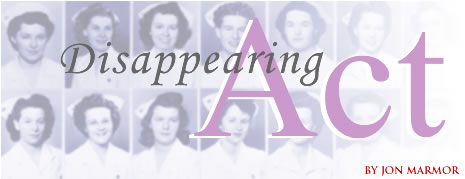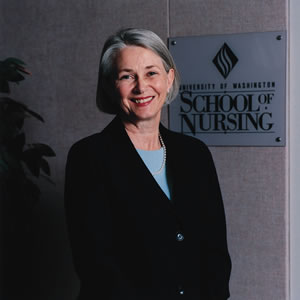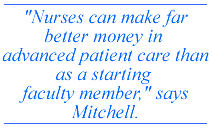
"The shortage has affected education because practicing nurses have less and less time for students," says Pam Mitchell, associate dean for research in the school. "Students work a lot with staff nurses, but as the work environment becomes more intense, there is less time for actual teaching. Hospitals simply can't afford for their nurses to spend their time teaching. The hours are long, the pressure is great."
While the bulk of the publicity on the nursing shortage centers around patient care-a recent study by the Joint Commission on Accreditation of Healthcare Organizations showed that the growing shortage of nurses is putting patient lives in danger-a quiet crisis that has quickly taken hold is finding teachers, especially for nursing school faculty. At the UW, the average age of the nursing faculty is 56, and many are going to be retiring in the next few years. This problem is nationwide. In Georgia, for example, a quarter of that state's nursing school faculty will retire or leave the profession in the next four years. (And that is not to mention the clinical side, where 40 percent of working registered nurses will be 50 years or older within the next decade.)

UW Nursing School Dean Nancy Fugate Woods says the nursing shortage will never be solved unless nursing schools get more funding to accommodate more students. Photo by Mary Levin.
The problem that keeps arising is money. "Nurses can make far better money in advanced patient care than as a starting faculty member," says Mitchell. A starting faculty member with a Ph.D at the UW School of Nursing makes $54,764. Overall, since 1990, Dean Woods points out, nursing faculty salaries have been flat, while many health-care organizations have used signing bonuses and flexible schedules to attract nurses.
"In 5-10 years, there is going to be a tremendous faculty shortage," Sue Woods says. "It is going to be very hard to replace the retiring faculty. We're getting old."

The UW has the state's only nursing doctoral program (UW Bothell and UW Tacoma offer baccalaureate and master's degrees) and unlike community colleges, where nursing teachers only need master's degrees, the UW and other universities of its stature require Ph.D.s for its faculty.
Diversity has always been a problem for nursing too, which historically has been a place for white women. Breaking down stereotypes and attracting people of color and men is an ongoing goal of the school's outreach program, which reaches as low as middle school to entice kids to consider nursing as a career.
Though the future looks bleak-surveys show that by 2010, there will be 400,000 fewer nurses than needed for patient care-Nursing Dean Woods isn't fazed. "I am an unqualified optimist," she says. "I believe we will be able to convey to students what incredible opportunities there are in nursing. And how you can make a real difference in a person's life. I loved being a nurse in clinical practice and caring for patients. What I find so rewarding is to pass that along to our next generation of nurses. We just need to work hard to find them and to fund them."
—Jon Marmor, '94, is associate editor of Columns.